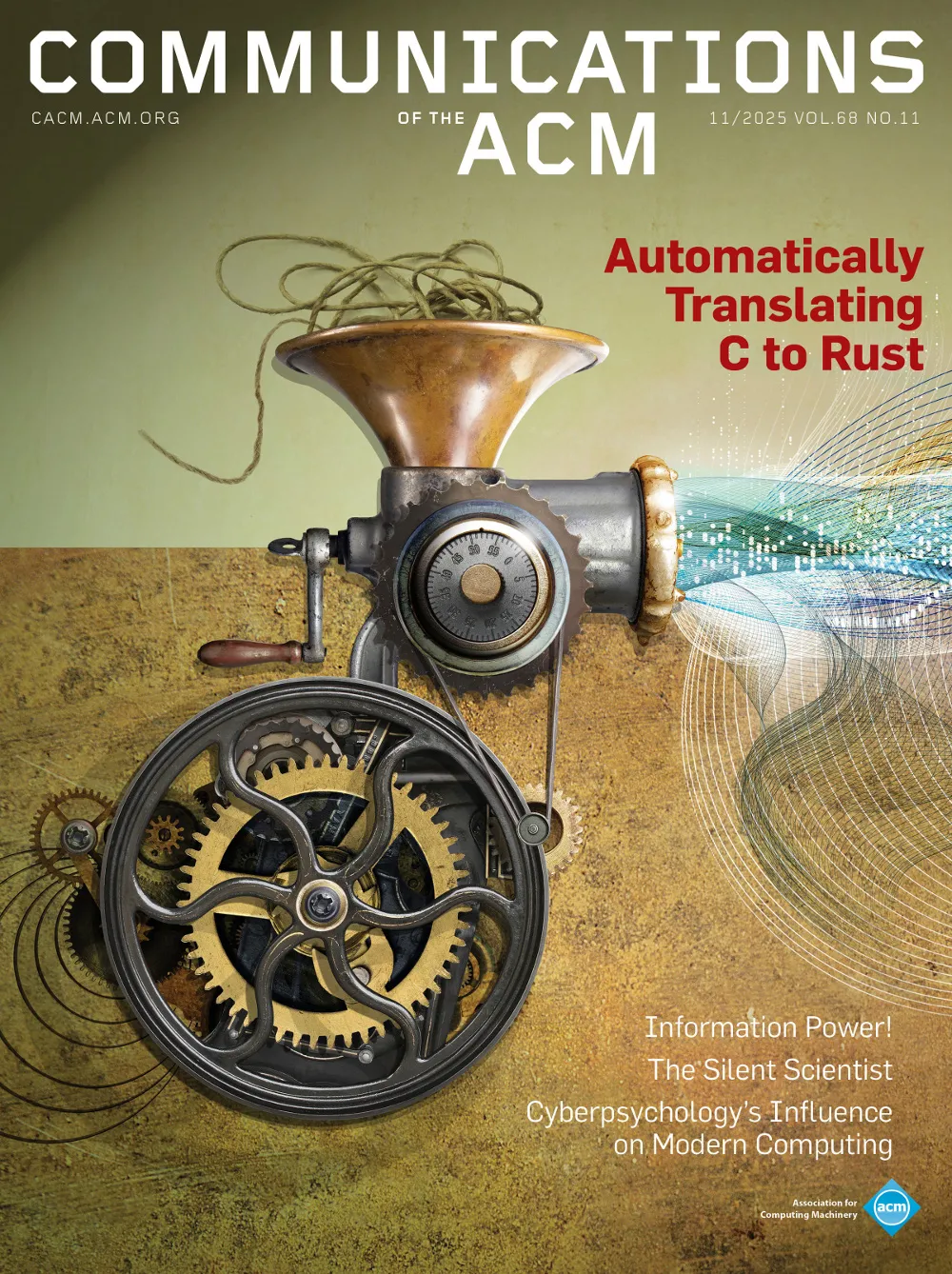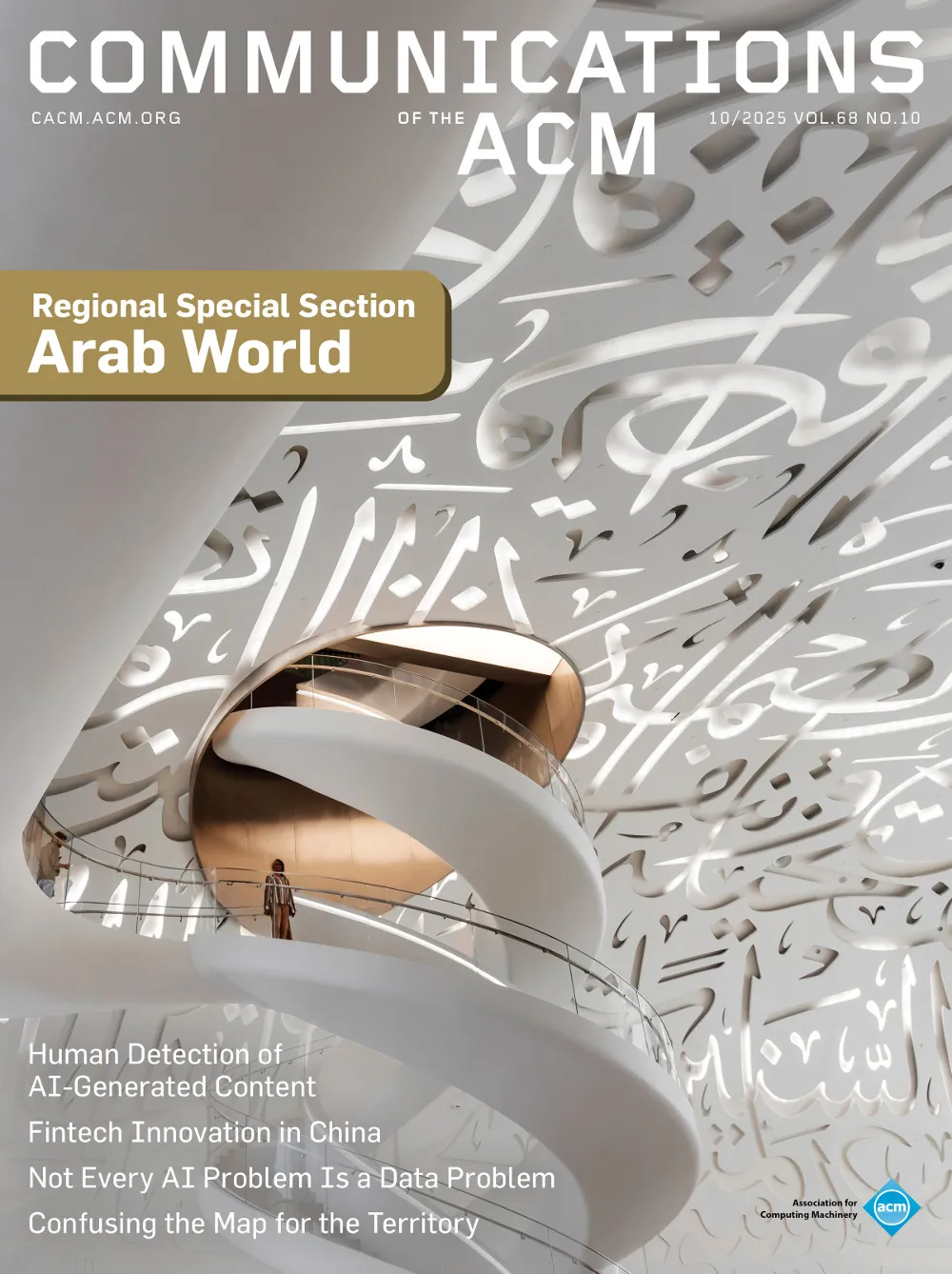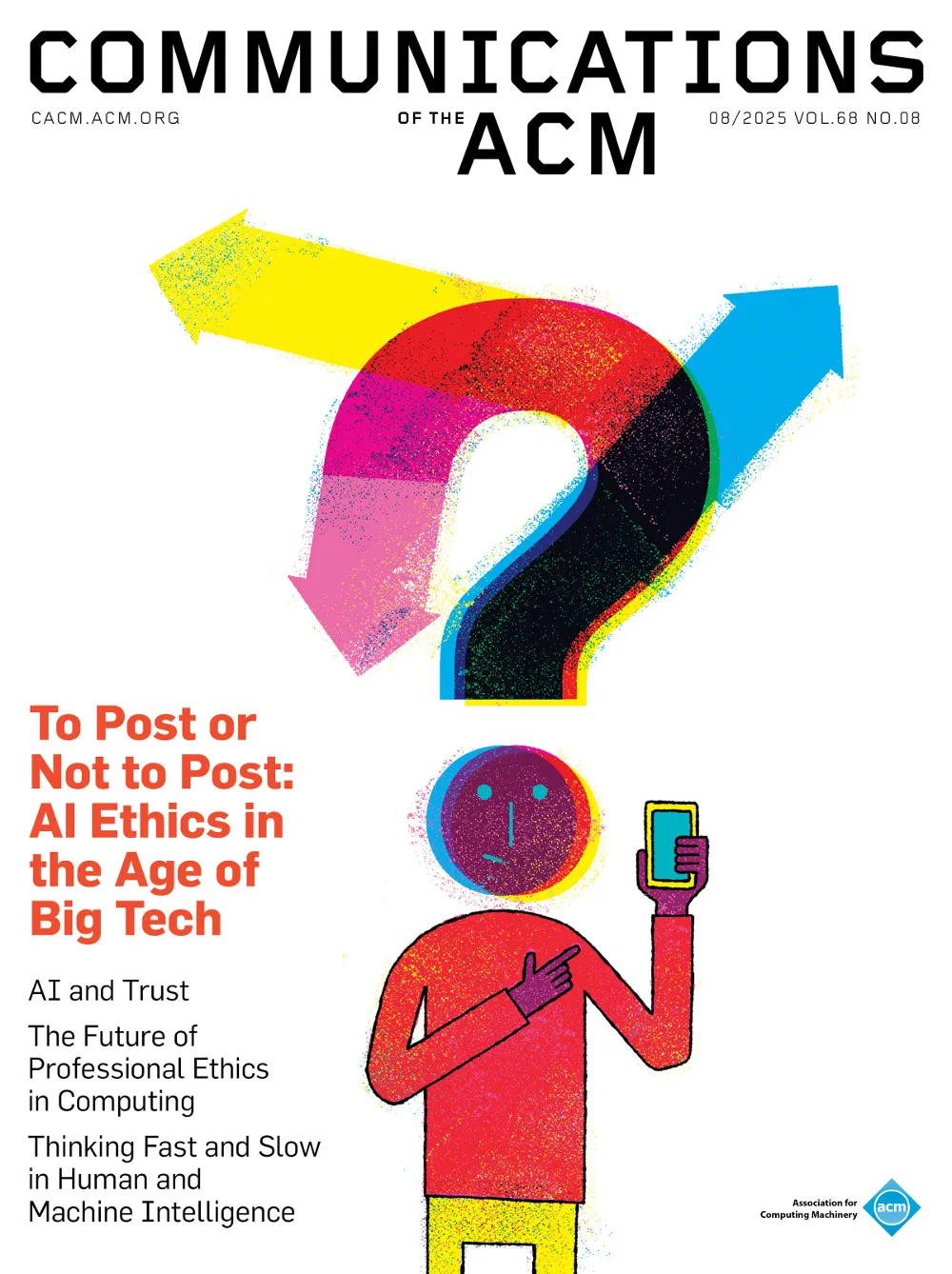We have entered a period in which computation is the principal animating factor in modern society.
August 2024 - Vol. 67 No. 8

Features
Spinning Electrons to Attain Low-Power Computing
Researchers are working to identify useful properties in antiferromagnets.
Can Artificial Intelligence be Open Sourced?
National and regional governments worldwide are investing significant amounts to build AI infrastructure and support AI innovation.
How Today’s Recommender Systems Use Machine Learning to Cater to Your Every Whim
Today’s recommender systems, driven by sophisticated models, are able to increasingly personalize your online experience.
Science Needs You: Mobilizing for Diversity in Award Recognition
Insights on how to create a more inclusive and equitable system of award recognition in the scientific community.
Artificial Intelligence, Social Responsibility, and the Roles of the University
Universities should collaborate with industry, government, and community organizations on activities to promote the socially responsible development and use of AI technologies.
Research Experiences for Undergraduates Are Necessary for an Equitable Research Community
Research internships for undergraduates are a necessary part of any solution toward equity in computing education.
Generative AI Requires Broad Labor Policy Considerations
Whether and under what conditions does generative AI automate or augment workers?
Welcome: 2024 Regional Special Section, Latin America
When it comes to computer science, Latin American researchers have made significant contributions to multiple areas.
Tackling Challenges in Implementing Large-Scale Graph Databases
Latin America has a long-standing tradition in fundamental research areas like db theory, string processing, info retrieval, and the design and analysis of algorithms and data structures.
Recent Advances on Principles of Concurrent Data Structures
Exploring new static and dynamic techniques on proving linearizability.
Requirements Engineering in Latin America: The Case of the WER
The Workshop on Requirements Engineering, a platform for research that addresses emerging trends and challenges, has been a springboard for emerging scholars.
Gradual Differentially Private Programming
The adoption of type systems in recent years has been facilitated by gradual typing.
Exploring Stereotypes and Biases in Language Technologies in Latin America
Research about fairness in computational applications and in language technologies has grown considerably in recent years.
The Role of Computing in the Study of Latin American Cultural Heritage
Computing can be a game-changing technology to accelerate the progress of cultural heritage research in Latin America.
Automatic Pronunciation Assessment Systems for English Students from Argentina
Computer-aided training systems can help learners of a second language improve their pronunciation skills.
GENis: Open Source Forensic Genetics Software for Judicial Cooperation
The GENis open source database of genetic profiles combines distinctive features, including a focus on international cooperation, and a capability to assist in missing persons cases.
Social Robots for Healthcare and Education in Latin America
Assistive robots are expensive, which means they are rarely used in schools or healthcare settings in Latin America.
Misinformation Campaigns through WhatsApp and Telegram in Presidential Elections in Brazil
The evolution and misuse of public groups on the WhatsApp prompted modifications to the platform’s architecture.
Telar and TelarKG: Data-Driven Insights into Chile’s Constitutional Process
The Plataforma Telar project aimed to weave together diverse data relating to the constitutional process and communicate its findings to the Chilean public.
Computing Everywhere, for Everyone, at Any Level
Students at every education level should have age-appropriate familiarity with computing.
Keys to a Comprehensive Computer Science at School Policy in Argentina
Advances in CS and its growing presence in everyday life have established a strong interest in including it in school curricula.
Leveraging Language Models and Automatic Summarization in Online Programming Learning Environments
Researchers enhanced tutor-trainee interactions by using stochastic language models to identify training errors to assist others making similar programming errors.
The Digital Degree Certification Revolution in Brazil and Beyond
The issuance and validation of paper-based degree certificates in Brazil presents a significant hurdle.
An Open Data Platform to Advance Gender Equality in STEM in Latin America
The ELLAS platform consolidates into a single source data from researchers, policymakers, and decision makers working on STEM and gender issues.
Scalable Technological Architecture Empowers Small-Scale Smart Farming Solutions
Monitoring stations facilitate real-time data acquisition that generates actionable insights for informed decision making.
ForestEyes: Citizen Scientists and Machine Learning-Assisting Rainforest Conservation
The project highlights how citizen scientists can effectively contribute to the fight against deforestation.
A Perspectival Mirror of the Elephant
Language bias sets a cultural barrier online and has serious implications for how Internet-based platforms reach across societal divides.
Free and Open Source Software–and Other Market Failures
Computing has scientific roots, and if it is not open source, it is not science.
A recounting of the past half-century of database technology.
An Analysis of the Math Requirements of 199 CS BS/BA Degrees at 158 U.S. Universities
While most CS departments in the U.S. require calculus, there is no consensus as to where in the degree program it should be placed.
Technical Perspective: The Software-Centric Approach of SYNERGY
The advantages of a software rather than hardware approach to FPGA virtualization.
Compiler-Driven FPGA Virtualization with SYNERGY
SYNERGY virtualizes FPGAs to be used effectively in datacenters.
In the future, human DNA and AI become intertwined, forming a Triple Helix that predicts, and directs, human behavior.






































